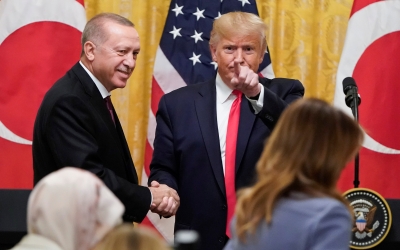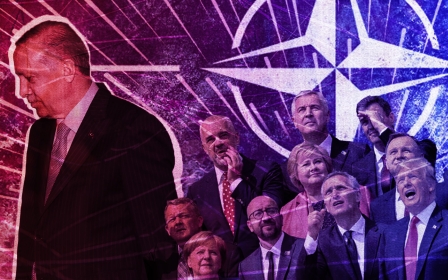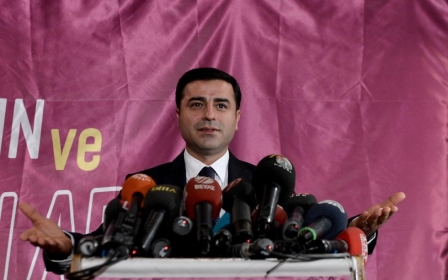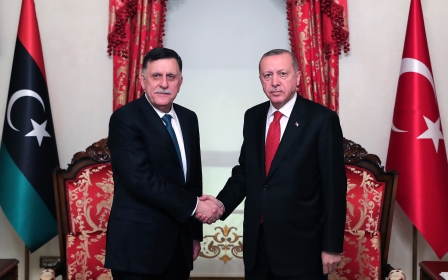Sanction Turkey over Russian S-400 deal, US senators urge Trump
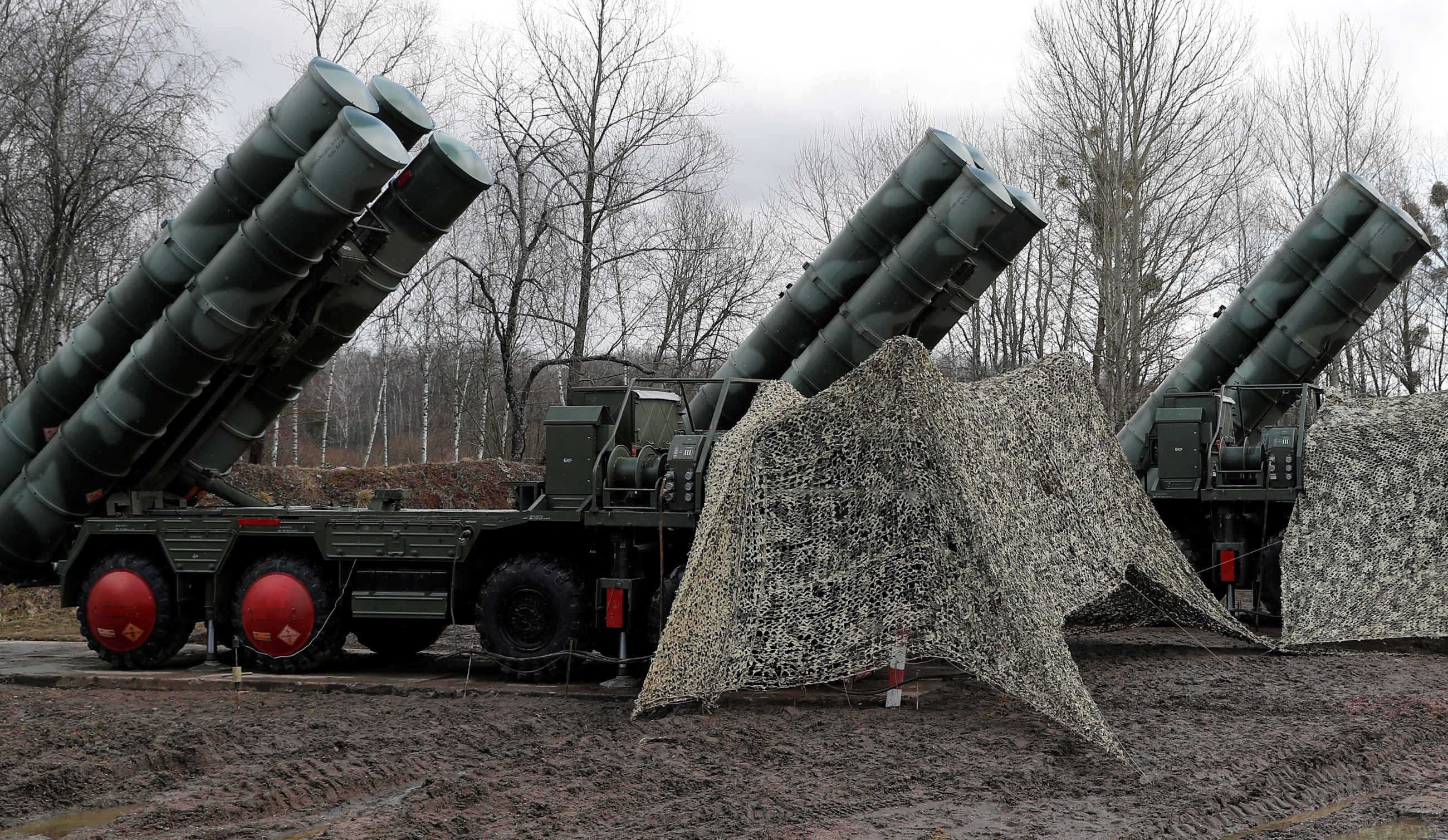
Two senior United States senators are calling on President Donald Trump's administration to penalise Turkey for the purchase of Russian air defence systems, in the latest bipartisan push against Washington's NATO ally.
In a letter addressed to US Secretary of State Mike Pompeo on Monday, Chris Van Hollen and Lindsey Graham said Turkey's President Recep Tayyip Erdogan moved forward with the S-400 deal against warnings from Congress and the Trump administration.
The senators cited a US law that calls for sanctions against people who engage in military transactions with Russia.
"The time for patience has long expired," Van Hollen and Graham wrote in the letter.
"It is time you applied the law. Failure to do so is sending a terrible signal to other countries that they can flout US laws without consequence."
The Countering America's Adversaries Through Sanctions Act (CAATSA) was approved in 2017 by the House of Representatives and the Senate with overwhelming bipartisan support.
The law orders sanctions against persons "engaging in transactions with the intelligence or defence sectors of the government of the Russian Federation".
US 'must impose sanctions'
Graham, a Republican, and Van Hollen, a Democrat, have been outspoken critics of Turkey, and in October, they introduced a bill that would impose visa bans on top Turkish officials over the country's military operation in northern Syria.
"Under the Countering America's Adversaries Through Sanctions Act, the United States must impose sanctions on Turkey for its acquisition on the Russian-made S-400 system," the senators wrote in their letter on Monday.
US officials have voiced concerns over the Turkish purchase of the Russian defence system, stressing that the S-400 could undermine the military technology of Turkey's NATO allies - particularly the F-35 jet.
The F-35 fighter jet is being produced in the US as a part of a programme involving multiple NATO countries.
Up until this summer, the programme included Turkey. But in July, Washington kicked Ankara out of the F-35 programme, citing the Turkish government's military dealings with Moscow.
"Unfortunately, Turkey’s decision to purchase Russian S-400 air defense systems renders its continued involvement with the F-35 impossible," the White House said in a statement at the time.
"The F-35 cannot coexist with a Russian intelligence collection platform that will be used to learn about its advanced capabilities."
But the Trump administration has not imposed further sanctions on Turkey in accordance with CAATSA.
For its part, Turkey says the push to deter it from buying military equipment from Russia is an act of "interference" that violates its sovereignty.
"It is out of question to completely leave [the] Russian S-400 to buy US Patriots. We can buy Patriots, too. However, we will buy S-400 as well," Erdogan told reporters when he was en route to Washington last month, as reported by Anadolu Agency.
Erdogan's White House visit came amid growing anger in Washington over Turkey's invasion of northern Syria, where Turkish forces sought to expel US-backed Kurdish fighters that had fought against the Islamic State (IS) group.
While a ceasefire has been declared in northern Syria, Graham and Van Hollen's letter signals a renewed push to pressure Turkey over the S-400 issue.
The US Senate has also tried to pass a resolution that would recognise the Armenian genocide despite Turkey's objections, but the motion has been stalled following Erdogan's summit with Trump.
The House passed a similar measure with strong bipartisan support in late October.
Middle East Eye propose une couverture et une analyse indépendantes et incomparables du Moyen-Orient, de l’Afrique du Nord et d’autres régions du monde. Pour en savoir plus sur la reprise de ce contenu et les frais qui s’appliquent, veuillez remplir ce formulaire [en anglais]. Pour en savoir plus sur MEE, cliquez ici [en anglais].


